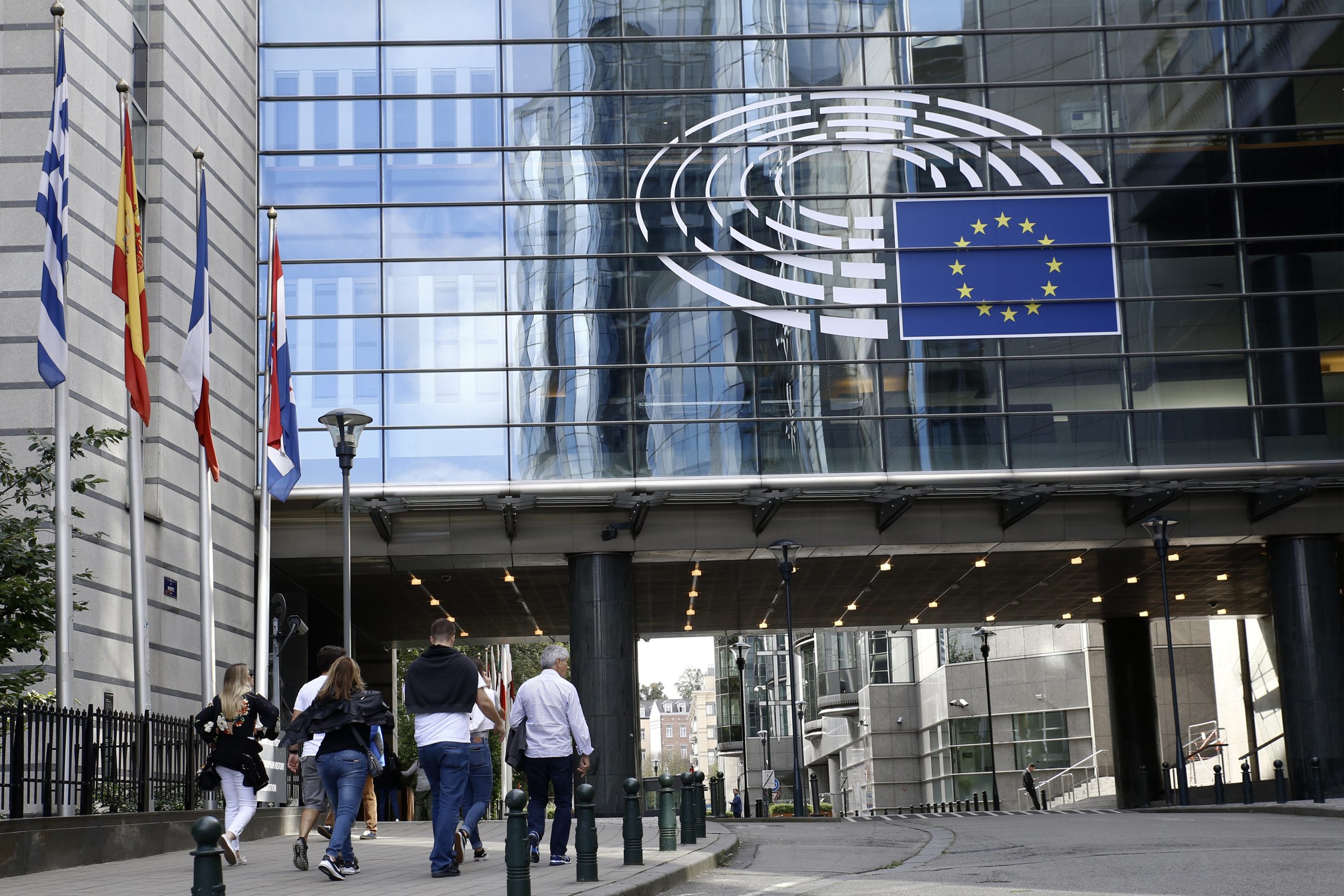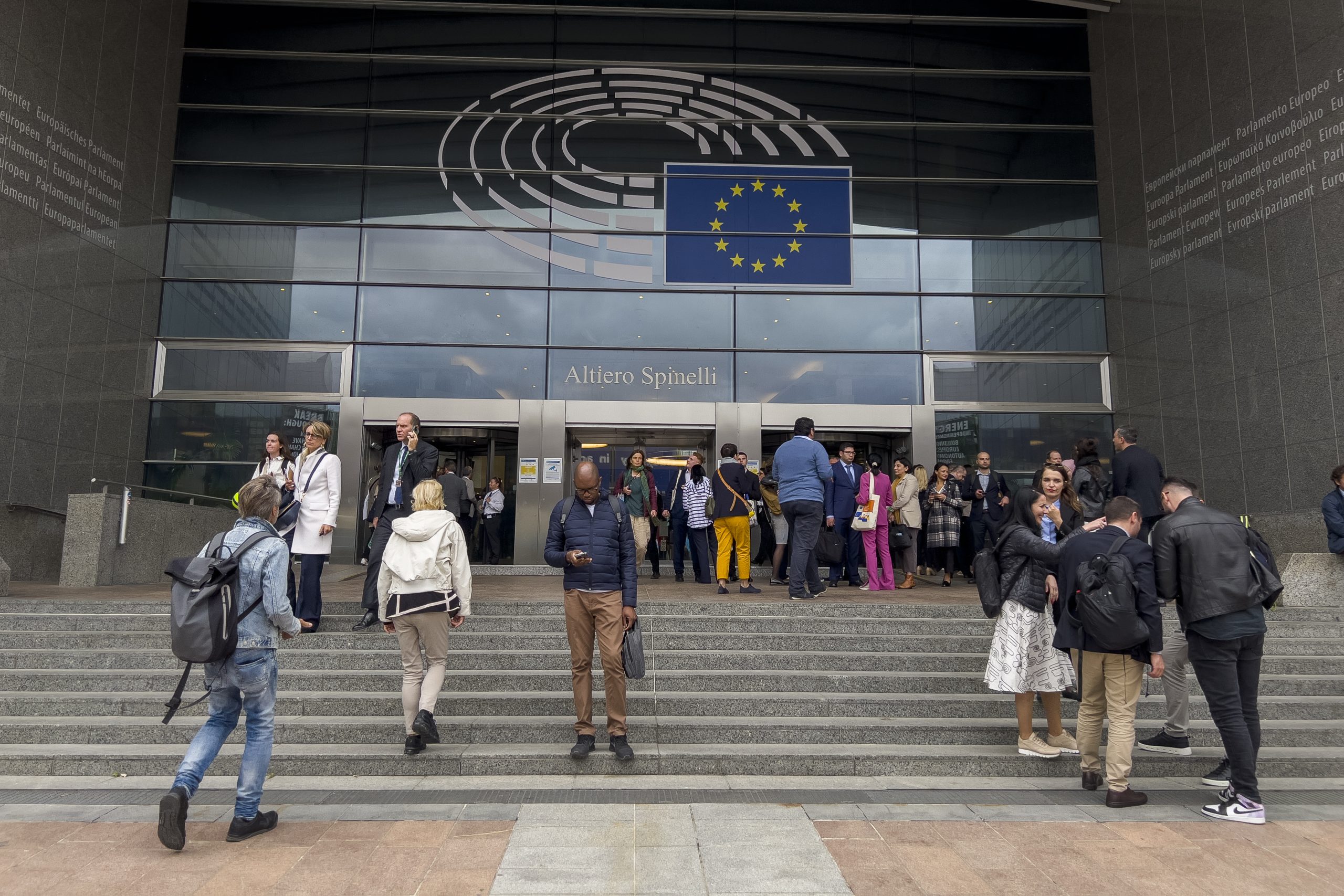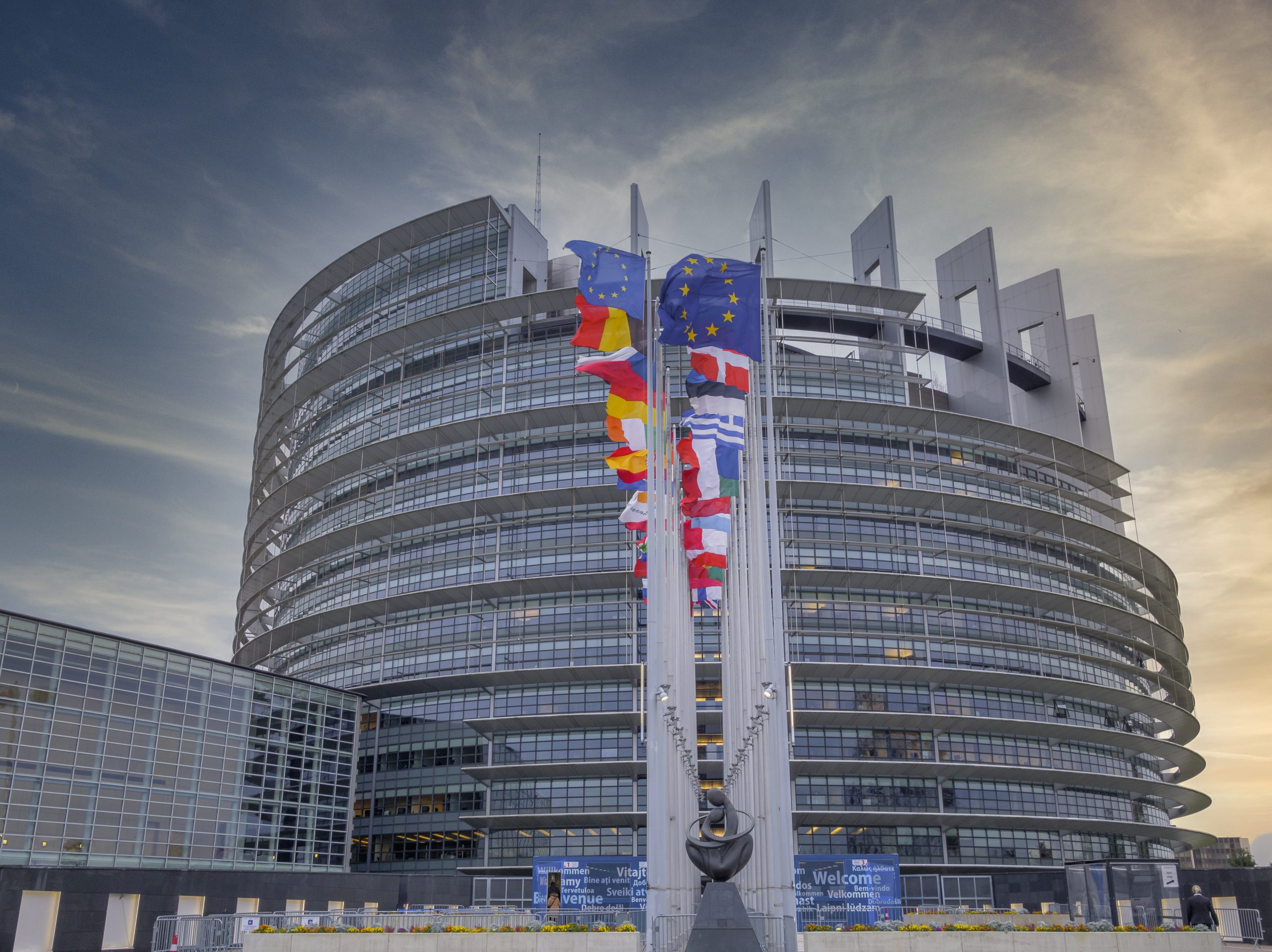Árpád LAPU: The EDAP, Legal Bases and the Issue of Indirect Legislation. Safeguard or Competence Creep?
The current legislative period (2019-2024) of the European institutions is without doubt an eventful one, with many questions arising for researchers to find interesting conclusions. A previous article „Stocktaking of the EP’s Current Legislative Term – One for the Books” published on this platform has examined the legislative activity of the European institutions during this mandate. This article will focus on an interesting, specific part of the legislative activity of the EU institutions during this legislative cycle, namely the European Democracy Action Plan (EDAP) package and the legislative initiatives falling under its scope. A common feature of these initiatives is the goal to protect European democracy, but also, most of the proposals under this package seem to bring up interesting questions regarding the legal bases and the lack of competence behind some initiatives.
The European Commission has initiated in 2020 December the European Democracy Action Plan, aiming to step up against various kinds of challenges to European democracy, for example, extremism, undue influence in electoral processes, manipulative content on the internet influencing elections, and protecting journalists against various forms of intimidation due to their work uncovering cases harmful to democracy. At the heart of the package, we can see the goal of the European Commission wishing to protect European democracy from various perceived threats. If we try to unpack the goals further, we can see that the legislations intend to protect many different values and priorities at the same time, such as the principle of democracy, safeguarding the fairness and constitutionality of elections, protecting European citizens from disinformation, protecting media plurality, and in the end, rule of law. These are issues regarding Article 2 TEU, but they have ramifications for the application of the Charter of Fundamental Rights as well. There were other initiatives of similar nature, like the mechanisms and procedures for protecting the EU budget and rule of law, however, due to the scope limitation; this article will focus specifically on the EDAP package.
The EDAP targets goals that are important for all Member States and citizens in the European Union, as it protects different aspects of democracy. Curious, however, why the European Commission has chosen legal bases that are not directly related to the principle of democracy, regulation of elections, protection of fundamental rights, etc., but instead legal bases of a commercial nature, serving the protection of the internal market. Due to the odd choice of legal basis, the problematic of competence creep can be observed in the proposals of the EDAP package, which serves in this form the adoption of EU legal norms in fields where no specific legislative competence has been conferred to the European Union from the Member States. Specifically, indirect legislation (as competence creep) is applied, where the EU legislates areas that are considered to fall within national autonomy, by cutting horizontally through multiple policy areas, not directly related (in this case) to the regulation of the internal market. In another case, the existing competence of the EU is considerably overstepped by certain parts of the proposal. Three significant, illustrative legislative proposals from this package are the modification of the 1141/2014 regulation on the statute and funding of European political parties and European political foundations, the Proposal for a Regulation on the transparency and targeting of political advertising, and the European Media Freedom Act.
Amending the Regulation on European Political Parties and Foundations
The European Commission has initiated the modification of regulation 1141/2014 in November 2021, with the goal of adopting clearer rules on the financing of European political parties and European political foundations, and on sponsored political content (to be in line with the proposal for a regulation on the transparency and targeting of political advertising). The proposal of the Commission, among other goals, included the introduction of an additional category of revenue sources for the regulated entities, establishing the notion of direct funding, and has proposed other measures of financial nature. However, the proposal has also included parts that were not in connection with the financial regulations of the European legal entities in question. The legal basis for the modification was the same as for the adoption of regulation 1141/2014, namely Article 224 TFEU, laying down the regulations governing political parties at European level, meaning European political parties and European political foundations, especially concerning rules regarding their funding.
In Article 3, paragraph 1. (d) the proposal obliges European political parties and foundations to ensure that their member organizations observe the values expressed in Article 2 TEU. Furthermore, according to Article 21 of the proposal of the Commission, the members of European political parties are obliged to demonstrate their compliance with Article 4 (1) point J (adopting internal rules regarding gender balance), and they would have to continuously publish information on gender representation on their website. For the European political party or European political foundation to be able to receive funding from the general budget of the EU, they need to comply with these obligations. If the member organization does not comply, the European political party or foundation might be faced with sanctions, according to Article 30 of the proposal, the party or foundation in question might suffer financial sanctions or in worse cases, might even be removed from the register, losing the status of “European political party” or “European political foundation” in accordance with Article 19 of the proposal.
Moreover, Article 24 of the proposal would lift the ban on the European political parties and European political foundations not to be able to support referendum campaigns in any of the Member States, “when those campaigns concern the implementation of the Treaties of the Union”. This means that in case the Commission proposal would be adopted, a European political party (having member parties from inside and outside of the Union) would have the possibility to support certain referendum campaigns in the Member States.
The proposal, therefore, would not only regulate European political parties but potentially extend to influence national political parties (thus national politics) as well, obliging them to publish information regarding their activities, to modify their internal rules and it would even allow for European political parties with an extensive range of memberships to finance referendum campaigns in the Member States. The latter is even more problematic if we consider that in some Member States it is possible to hold referenda and elections close to each other (or even on the same day). The European Commission has thrived for indirectly regulating national political parties and election rules (a form of competence creep) using the legal basis of Article 224 TFEU, which should only serve to regulate European political parties and European political foundations — and particularly their financial governance. The ordinary legislative procedure of this file is currently in progress, the last trialogue meeting was held on the 29th of March, with no agreement reached.
The Proposal for a Regulation on the Transparency and Targeting of Political Advertising
The Commission has presented the proposal on 25 November 2021 with the goal to complement the rules of the Digital Services Act, specifically focusing on sponsored political advertising. The legal basis of the proposal is Article 114 of TEU (“adoption of measures to ensure the establishment and functioning of the internal market”) and it seeks to establish a common regulatory framework that would enhance the transparency of sponsored political advertising both online and offline. The regulation would require political adverts to be clearly labeled as such and include information on who is the sponsor, the price of the advertisements, and the elections or referenda to which it is linked. Publishers are also required to issue a clear statement regarding the political nature of the advertisement and to make information available regarding the context of the political advertising. They would be obliged to filter if a particular advertisement does not comply with certain transparency requirements. The proposal would also adopt harmonized rules for targeting and amplification techniques of political adverts, and oblige national authorities to sanction those who infringe with the regulation. The trialogue negotiations are currently in progress.
The proposal states in (15), (16), and (17) that the core expression of the regulation, “political advertisement”, has no legal definition in EU law and therefore anything that is disseminated or published directly or indirectly on behalf of a political actor or anything that can be presumed to be liable to influence political debate “except for messages of purely private or purely commercial nature” can be deemed a political advertisement. Also, any publication or dissemination that is “liable to influence the outcome of an election or referendum, legislative or regulatory process or voting behavior” is also a political advertisement.
From this description, which especially states that it does not include purely private or commercial messages, it is evident that the goal of the regulation is not ensuring the protection of the internal market (contrary to the legal basis chosen, as presented above), on the contrary, it is focused on protecting elections, referenda, legislative processes, etc. It clearly states that any ad that might influence national elections falls within the scope of the proposal. Regulating election processes (except for the common rules regarding European Parliament elections) is not within the competence of the European Union. It is safe to assume that the goal of the legislator in this case is also to regulate areas outside of clear-cut EU competences.
The European Media Freedom Act
One of the goals of EDAP is “to protect and empower journalists, and to ensure media freedom and pluralism throughout the Union”. In September 2022, the proposal for the “European Media Freedom Act” (or EMFA) was presented by the European Commission. It takes the Audiovisual Media Services Directive as a starting point and aims to “set rules to protect media pluralism and independence in the EU, including safeguards against political interference in editorial decisions.” The initiative would establish the European Board for Media Services, having a diverse range of tasks according to Article 12. It would — among other tasks — support the Commission in ensuring the correct application of the proposal, and would provide opinions for requests for enforcement measures in case of disagreement between the requesting authority and the requested authority. It would also provide opinions on national measures concerning media service providers, on national measures likely to affect the functioning of the internal market, on national decisions impacting media pluralism and editorial independence, etc. In case of its adoption, it would establish an authority that would monitor national media regulations and decisions of public authorities of the Member States regarding media regulation.
The legal basis of the initiative of the Commission is Article 114 TFEU, “which provides for the adoption of measures for the approximation of the provisions laid down by law, regulation or administrative action in Member States which have as their object the establishment and functioning of the internal market.” Under the pretext of protecting the functioning of the internal market, the European Commission aims to regulate and monitor national media legislations, administrative decisions, and the markets of Member States. It is clear from the goals of EDAP that in this case, the central problem that the regulation is trying to solve is not of an economic nature, but rather protecting values and fundamental rights, such as the pluralism of media and freedom of the press. The legal basis serves the goal of avoiding the problem of not having the competence and majority needed to initiate legislation purely regulating media realities in the Member States — hence it constitutes indirect regulation, i.e. as competence creep. The proposal in question is currently in the first phase of the legislative procedure.
The Problems with Indirect Legislation
The following examples show that the European Commission often chooses legal bases for proposals (especially in the framework of the EDAP package) that do not coincide with the main purposes of the proposals. It often references the protection of the functioning of the internal market to regulate national election processes, media regulation, administrative and other decisions, and generally, questions of democracy, rule of law, and fundamental rights. The EU often has the necessary competence in the field of the functioning of the single market to adopt legal acts with a qualified majority instead of consensus in the Council of the European Union, and also, the Commission can use such legal bases to try to regulate fields where the EU bears no legal competence at all. This way the EU can regulate other fields where the Member States have the right to adopt legislation (indirect legislation), simply through legal acts adopted based on a field where the EU does have competence.
However, it is questionable, whether Member States tend to support such proposals in the Council. As Masters of the Treaties, they are not interested in losing competence in fields where they have not transferred it to the EU. This method therefore presents practical problems, but also theoretical ones as well. Indirect legislation (which is one form of competence creep) does not respect the principle of conferral, the principle of subsidiarity, and the principle of proportionality, as regulated in Article 5 TEU. The EU “shall act only within the limits of competences conferred upon it by the Member States in the Treaties”, in areas not falling within its exclusive competence, “shall act only if and in so far as the objectives of the proposed action cannot be sufficiently achieved by the Member States” and “the content and form of Union action shall not exceed what is necessary to achieve the objectives of the Treaties”. In the end, the original source of sovereignty is the people of each Member State. If the Commission does not respect the indirect decisions of the peoples of the Member States regarding competences, it breaches the principles of rule of law and the ideal of popular sovereignty, in spite of the fact that the goals of EDAP are important and in the end try to protect democracy and rule of law in the EU. Thus, only one question remains: Can measures that breach the rule of law and the principle of democracy nevertheless safeguard European democracy?
Árpád Lapu is a policy adviser on constitutional issues at the European Parliament since 2019 and a PhD student of the Károli Gáspár University of the Reformed Church in Hungary. Between 2017-2019, he worked as an adviser at the Cabinet of the Minister of Justice of Hungary, conducting comparative constitutional analyses. He has earned his JD at the Pázmány Péter Catholic University in Hungary, has a BA in international relations from the University of Szeged and an MA in European and international administration from Andrássy Gyula German Speaking University in Budapest. He has completed an Edx MicroMaster in cooperation with the Catholic University of Louvain (UCLouvain) in international law. His field of research is non-participation in armed conflicts in international law and constitutional norms regarding non-participation in armed conflicts. He has written publications regarding the future of the EU ETS system of the European Union, institutional reform proposals of the Union, and researches in the field of social sciences.








